The FCC has been all about broadband this year. In the mix with net neutrality and the Comcast/TWC merger, they’re also taking on the dearth of broadband competition consumers face and even thinking about redefining the meaning of the term to a higher minimum network speed. But AT&T and Verizon aren’t having it: according to comments they’ve filed with the FCC, a wired network connection too slow for a solid Netflix connection, and slower than the 4G your phone uses, should be perfectly satisfactory for a bandwidth-hungry nation. [More]
broadband competition
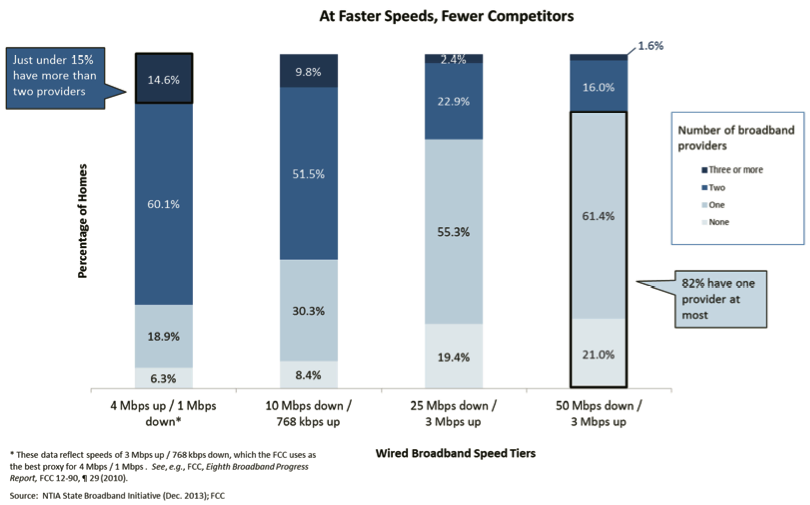
FCC Chair Admits There Is Nowhere Near Enough Broadband Competition
In spite of what Comcast would have you believe, there is very little actual competition among broadband providers in the U.S. And this morning, FCC Chair Tom Wheeler publicly explained the woeful state of competition for America’s Internet users. [More]
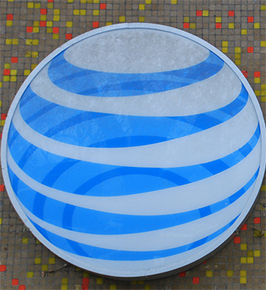
AT&T: Municipal Broadband Should Be Banned Anywhere Private Companies Might Want To Do Business Later
It’s no secret that AT&T and other big ISPs are no fans of municipal broadband projects. There are laws on the books in many states that block the expansion of municipal networks, but the FCC is considering using its authority to override those laws and let communities build networks if they wish. AT&T is also no fan of this proposal. In fact, says AT&T, not only should public networks be barred anywhere there is already a private option, but also they should be barred in any place there might possibly be a plan to build a private option in the future. [More]
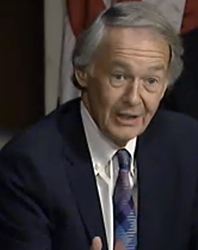
Senator Challenges Comcast, AT&T Execs On Opposition To Municipal Broadband
The Senate Commerce Committee held hearing today on broadband competition, media consolidation, and the future of online video transmission. Among the witnesses were Comcast exec David L. Cohen and AT&T bigwig John T. Stankey. During the hearing, Massachusetts Senator Ed Markey directly asked the two about competition from municipal broadband providers. [More]
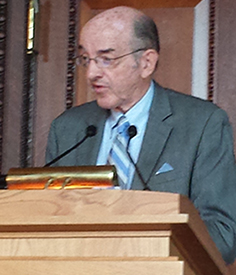
Former FCC Commissioner: “We Should Be Ashamed Of Ourselves” For State of Broadband In The U.S.
In Washington, DC today, a group of internet industry executives and politicians came together to look back on the Telecommunications Act of 1996, and to do a little crystal-ball gazing about the future of broadband regulation in the United States. Former FCC commissioner Michael Copps was among the presenters, and he had sharp words for the audience about the “insanity” of the current wave of merger mania in the telecom field and the looming threats of losing net neutrality regulation. [More]

These Are The End Times For The Gaming Console
The newest, fastest, shiniest, next generation of video game consoles — Microsoft’s Xbox One and Sony’s PlayStation 4 — launched to great fanfare last fall. They are both generally well-received and have sold in respectable numbers. Both companies have declared success, and not without reason. And yet, in spite of all the indicators of a thriving console business, this is almost certainly the last generation of set-top video game consoles we will ever see. [More]
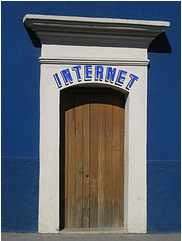
FCC Chairman: FCC Should Preempt State Laws That Ban Or Restrict Municipal Broadband
Broadband competition in the United States stinks. One alternative is for local entities — cities and municipalities — to create their own public networks, when big companies like Comcast don’t or won’t serve them. But in 40% of states, there are laws on the books implicitly or explicitly forbidding public broadband. This week, FCC Chairman Tom Wheeler appears to be making good on his earlier remarks and is directly challenging those state laws. [More]

Letting Sprint Buy T-Mobile Will Fix Broadband Competition, According To Sprint Chairman
Yesterday at the Code Conference, Sprint chairman Masayoshi Son spoke about the (terrible, horrible, no-good, very bad) state of internet service in the United States. But there was a distinctly self-serving undercurrent to Son’s speech. [More]

Why Starting A Competitor To Comcast Is Basically Impossible
The mega-rich can dabble in pretty much any business they want to. Warren Buffet owns everything from furniture stores to ice cream chains. Richard Branson started a commercial spaceflight company, for crying out loud. And yet with demand for high-speed, affordable internet access going only up, up, and up, no new business or venture capitalist seems to be stepping into the fray to provide it. People passionately hate their current cable companies — so what’s stopping an enterprising entrepreneur from making a giant wad of cash entering the telecom game? [More]

Don’t Believe Comcast… Mobile Broadband Is Not Competition For Cable Internet
Merger-mad Comcast and Time Warner Cable would have you believe that they are in direct competition with mobile broadband. And Verizon has successfully misled the state of New Jersey into thinking that accessing the web on your phone is the same as having a high-speed data connection to your home. Both of these conceits may someday be accurate, but the reality of the here-and-now is quite different. [More]

The Comcast Merger Isn’t About Lines on a Map; It’s About Controlling the Delivery of Information
Comcast and proposed merger partner Time Warner Cable claim they don’t compete because their service areas don’t overlap. They say that a combined company would happily divest itself of a few million customers to keeps its pay-TV market share below 30%, allowing other companies that don’t currently compete with Comcast to keep not competing with Comcast.
This narrow, shortsighted view fails to take into account the full breadth of what’s involved in this merger — broadcast TV, cable TV, network technology, in-home technology, access to the Internet, and much more. In addition to asking whether or not regulators should permit Comcast to add 10-12 million customers, there is a more important question at the core of this deal: Should Comcast be allowed to control both what content you consume and how you get to consume it? [More]

Comcast Officially Files for TWC Merger, Claims Broadband Competition Is Fine Because You Have A Smartphone
It’s a big day for Comcast: not only did they win a big old golden poo this morning, but also they formally took the first step in the regulatory dance that stands between them and their purchase of Time Warner Cable by filing a mountain of paperwork with the FCC. The massive document contains all of Comcast’s explanations for why the merger is the best idea ever… and it’s a doozy. Let’s take a closer look at their arguments, shall we? [More]
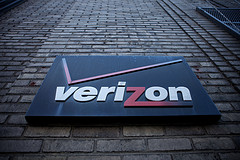
Verizon: Everything Is Great, Let’s Not Mess It Up By Fixing Net Neutrality
Ah, Verizon, those well-known lovers of net neutrality. They love it so much that they sued the FCC to get net neutrality tossed out — a move that succeeded earlier this year. And now, Verizon’s showing their deep and abiding fondness for internet openness by telling the FCC just how much we don’t need to protect it at all. [More]
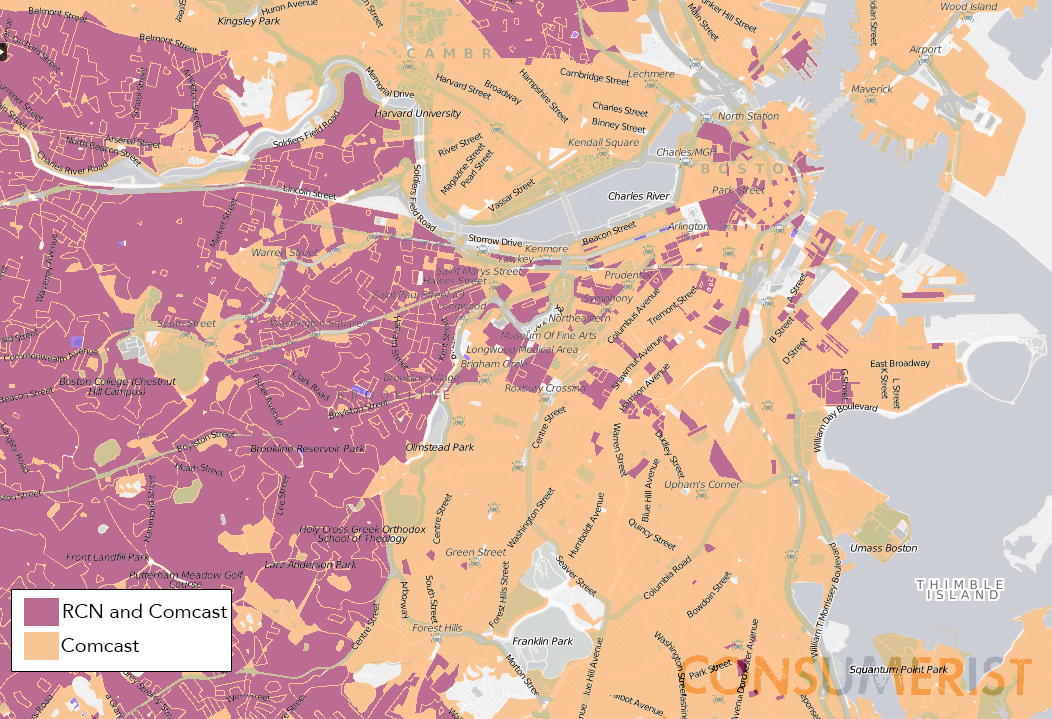
Here’s What the Lack of Broadband Competition Looks Like on a Map
When announcing Comcast’s intention to buy Time Warner Cable, Comcast CEO Brian Roberts called cable a “highly competitive and dynamic marketplace.” Dynamic it might be, but competitive it isn’t. Most of us live a local monopoly, cable-wise: it might be a Comcast city or a Time Warner town, but we don’t have that much choice with our providers. And those companies also, hugely, provide our broadband access. So what does 75% reach or a 15% market share really look like, to a city and the people in it? [More]

Two Big Reasons The Comcast And Time Warner Cable Deal Is Bad For Consumers
Yesterday, Comcast and Time Warner Cable announced a $45 billion merger deal. Consumer advocacy groups (and consumers) were less than thrilled about Comcast’s big news, and ardently called on the FCC and the Justice Department to alter or prevent the buyout. [More]


